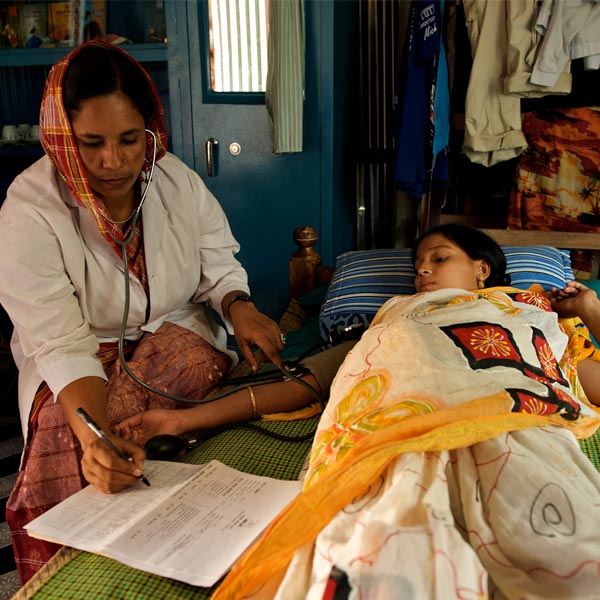A door to proper healthcare, is what everybody strives for. In the developing countries of the world, governments are upgrading their healthcare systems to ensure access for all. The scenario isn’t different in Bangladesh. Steps were taken to set up a broad network of healthcare facilities from District Hospitals to Upazilla Health Complexes to Community Clinics and Union Health & Family Welfare Centres at the local level. However, at the local level access to affordable and proper care remains difficult due to absenteeism of skilled staff and lack of medical equipment and medicines.
A recent survey of the Anti Corruption Commission (ACC) highlights the problem. In unannounced visits to 11 government hospitals and union complexes in different districts revealed that 40 percent of the doctors were absent . In total 92 out of 230 health professionals were found to be not present during the ACC visits between 9am and 2pm. The situation outside Dhaka was worse, as in 8 regional hospitals the absence rate was as high as 62 percent, with 81 out of 131 doctors being absent. The reason behind such negligence of duty at public hospitals and health centres is that physicians spent most of their working hours in private practices, earning extra money, to add to their full salary as a government health worker.
The ACC sent out their teams to this survey after receiving numerous complaints from the general public through its hotline. People complained about having to pay bribes to obtain services, and being deprived of medical services due to the absence of doctors in government hospitals and health complexes.
In the Max Foundation project area of Chhatak field staff also experiences problems with absenteeism at the local facilities. While motivating pregnant women to visit the local facilities for regular antenatal and postnatal check-ups, to establish sustainable healthy practices, staff notes that the health facilities are not always able to deliver these services. Though this was created to help out local people in emergency, it does not possess sufficient helping hands or accessories to give proper medication on time. In the Union Health Complex of Jurapani Village in Chhatak the appointed doctor is only available on Tuesdays, when she does regular checkups of people, mostly of pregnant women. Other than a doctor, there is a midwife and an assistant who are in-charge of the place in absence of the doctor. However, when the midwives is called away on duty or for training, the people will find the door locked. Most people go there for regular checkups like blood pressure, fever and also for normal delivery. For checkups like ultrasound or blood tests, the people of the village have to travel directly to Sylhet as there are no provisions for this in the health complex of Chhatak too. The poor people bear the brunt, as they can not afford the more expensive private services. Max Foundation staff notes that the condition is slowly improving as more community birth attendants receive proper training. These so-called private community skilled birth attendants (pcsb) can provide services for the poor the ensure a safe pregnancy and delivery. However in case of complications the poor are still forced to take loans to pay for more professional health care.
Read More on The Daily Star & Dhaka Tribune











 (14)
(14)